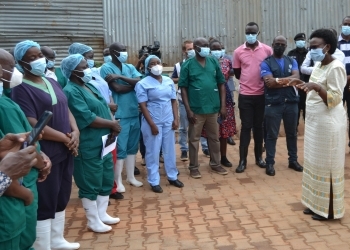
"Personalised" treatments for breast cancer are a step closer, according to research scientists at Cardiff University.
The scientists used gene technology to compare and contrast specific genetic errors in particular types of mouse breast cells.
They were able to replicate "almost the entire spectrum" of aggressive breast cancer coming from one cell type.
It helps understanding of the disease, which has at least 10 different forms.
The research was led by Matt Smalley from the European Cancer Stem Cell Research Institute at Cardiff University and conducted in collaboration with colleagues from Spain, Brazil and the UK.
He said the work involved a genetic "trick" to study how one genetic error manifested itself in two different cell types and what happened when different errors were in just one cell type.
"We now have strong evidence that here is one particular cell type in the breast associated with the most aggressive form of human breast cancer," said Dr Smalley.
HOW DANGEROUS IS BREAST CANCER?
- Breast cancer is the most common cancer
- Around 50,000 women and 400 men are diagnosed with breast cancer each year
- One woman in eight will be diagnosed with breast cancer in their lifetime
- Around 12,000 women and 80 men will die from breast cancer each year
- More than 80% of women with breast cancer are still alive five years after diagnosis
Source: Breast Cancer Campaign
"In one part of the study, we created the same cancer-predisposing genetic errors in each of the two cell types. In another part, we created different genetic errors in the same cell type."
He said is was remarkable that some of the cancers that formed in one cell type - oestrogen receptor negative luminal cells - resembled common human breast cancer types.
'Extra cells'
Dr Smalley said the cell type concerned responded to both normal menstrual cycles and the hormones of pregnancy by dividing to generate the extra cells needed for breast feeding.
Scientists suspect breast cancer occurs when these cells go wrong and start to divide at an inappropriate time, he said.
"These results add to our understanding of the origins of breast cancer diversity and emphasise the importance of understanding the biology of this cell type to better understand how breast cancer develops," said Dr Smalley.
"It takes us towards a way of personalising medicine, where 'drug X' is good for that particular type of breast cancer."
Cancer Research UK senior science information manager Nell Barrie said: "This research takes us one step closer to understanding why we see so much diversity in breast cancer, and will help expose each cancer's weakness so we can develop more effective and kinder treatments."
Comments (0)
📌 By commenting, you agree to follow these rules. Let’s keep HowweBiz a safe and vibrant place for music lovers!












